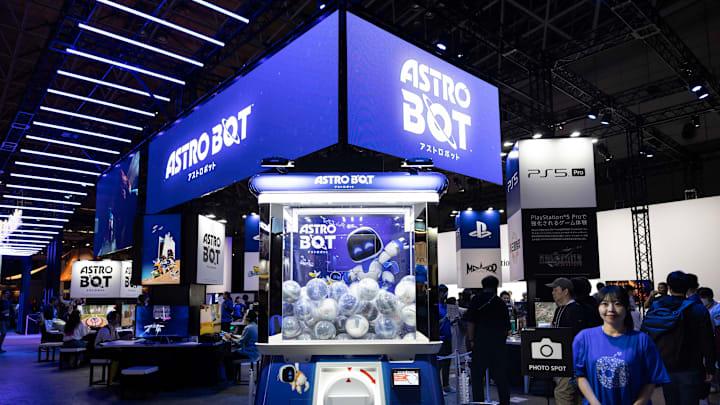Sony has had an interesting 2024. On one hand, Concord’s launch and subsequent shuttering were some of the worst news the company has faced since joining the gaming industry. Just a few days later, the release of Astro Bot was a huge success. As the game was met with resounding praise, this was a reminder to leaders in the industry that players and critics alike have made it clear what they want to see more of and what needs to go away as the future of gaming takes shape.
It went on to win the coveted Game of The Year title at The Game Awards.
Released on September 6, Astro Bot is a single player, 3D platformer of yore. It’s a game featuring a “cute” titular character going through a variety of different themed stages, with intricate and challenging gameplay along the way. Immediate comparisons likened this game to some of the best hits from the Mario franchise, pointing out that Astro Bot is a throwback to an era that helped make games as popular as they are today.
According to reports, Astro Bot was created in three years by Team Asobi, a group comprised of 60-65 employees, many of which worked on the previous iterations of the Astro Bot franchise. With a smaller budget, a familiar team, and fewer pressures facing them, this group was able to deliver a product that has quickly caught the attention of the gaming world. Many immediately pointed to this as their favorite to win Game of the Year.
There’s a major lesson to be learned from these two situations involving Concord and Astro Bot. More and more, gaming companies and the individuals leading them are focused on the bottom line. Making decisions with revenue and profits at top of mind. Chasing the trends that were once popular, investing major budgets behind them, taking five or more years to create the product, and then releasing them to middling performance. This is followed by massive layoffs and studio closures, all the while the individuals making these decisions keep their positions to redo the cycle all over again.
Let’s look at this conversation from two different points of view. While video game creation is an art form for many, the bottom line remains the top focus. These companies get into the game-making space to make money. If they make great art along the way, that’s an acceptable occurrence. But dollar signs will continue to lead the way. Going back to 1998, 18 of the last 25 top-selling games were multiplayer in nature, led by games in the Madden and Call of Duty series. The millions that these two games bring in year after year continue to drive leaders to chase the trends, they’ve put into place via microtransactions, games as a service implementations, and more.
But on the flip side of the coin, those top selling games are rarely considered the Game of the Year. That accolade typically falls to single-player games that many would consider “art.” Overwatch won Game of the Year in 2016, and that is the only multiplayer game to win in the history of the Game Awards. The divide between critics’ perceptions and sale receipts is a constant in the current state of gaming.
Will Astro Bot’s initial success be a catalyst for change? The gaming industry can’t continue its current trajectory. Concord and other games like it (see Suicide Squad) continue to fail on a near annual basis, with accountability hitting the wrong individuals in the development cycle. Here’s to hoping that decision-makers see the value in giving teams the right support to make quality games without the crushing pressure of profits and revenue leading to disastrous outcomes.
